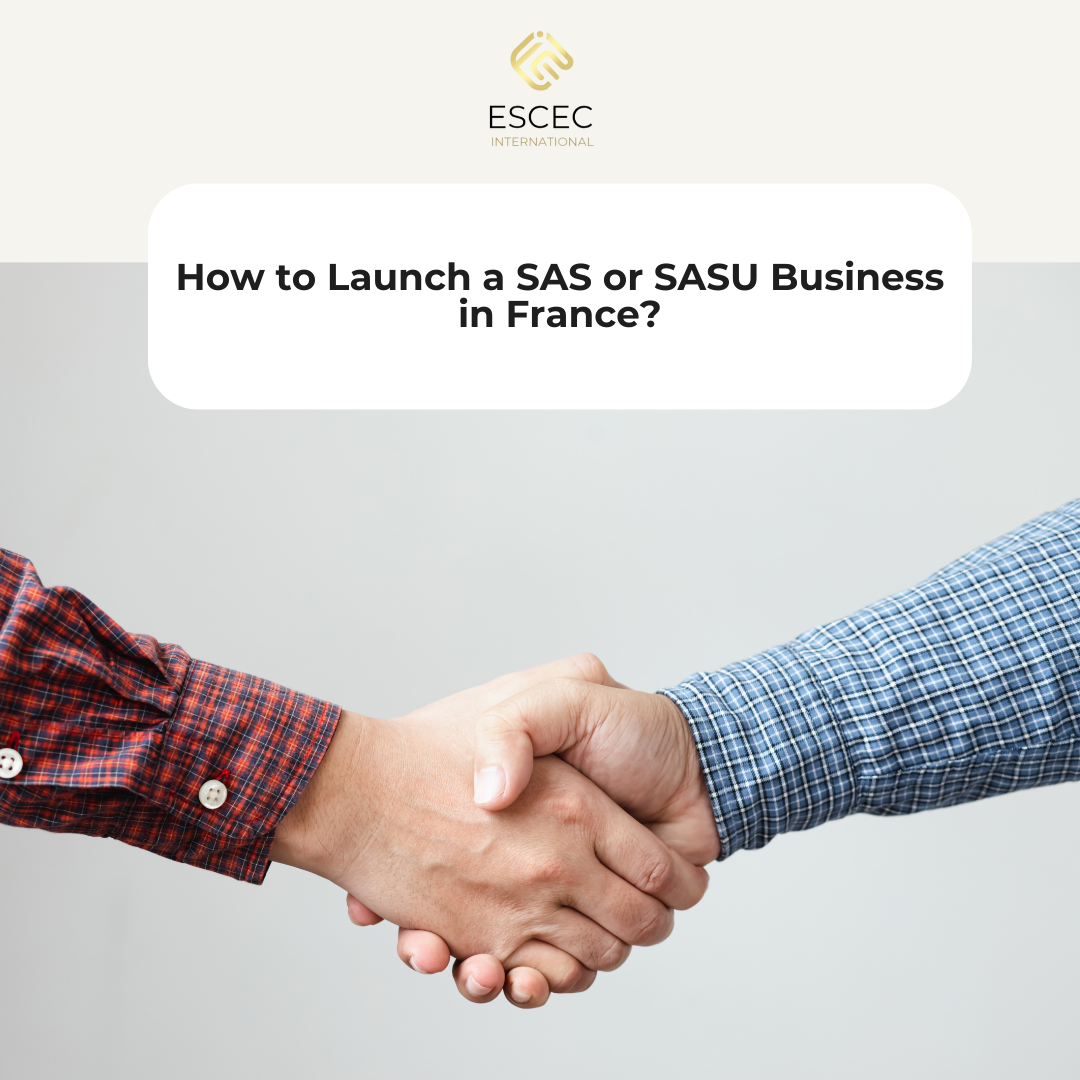How to Launch a SAS or SASU Business in France?
Starting a business in France can be an exciting opportunity, especially with structures like SAS (Société par Actions Simplifiée) or SASU (Société par Actions Simplifiée Unipersonnelle). These corporate forms offer flexibility, limited liability, and simplified management, making them ideal for entrepreneurs, startups, and foreign investors.
What is the Difference Between SAS and SASU?
The SAS is a simplified joint-stock company suitable for multiple shareholders, while SASU is the single-shareholder version. Both structures provide limited liability, meaning your personal assets are protected, and allow for flexibility in management and capital organization.
-
SAS: Requires at least two shareholders. Flexible decision-making and distribution of profits.
-
SASU: Single owner, simpler administrative processes, same benefits as SAS.
Why Choose a SAS or SASU in France?
Choosing SAS or SASU offers several advantages for launching a business:
-
Limited Liability: Shareholders are only liable up to their contribution.
-
Flexible Management: You can tailor rules in the company’s statutes.
-
Attractive for Investors: SAS structure allows easy issuance of shares.
-
Social Security Benefits: The president (CEO) is covered under the general social security system.
-
Corporate Tax Options: Possibility to opt for standard corporate tax or, under certain conditions, income tax.
How Do You Start a SAS or SASU in France?
Launching a SAS or SASU involves several clear steps:
-
Draft Company Statutes: Define rules for management, share distribution, and decision-making.
-
Deposit Share Capital: Open a French bank account and deposit minimum capital (usually €1).
-
Appoint a President: The legal representative responsible for management.
-
Register the Company: Submit documents to the Centre de Formalités des Entreprises (CFE) or the Registre du Commerce et des Sociétés (RCS).
-
Publish a Legal Notice: Announce the creation in an authorized journal.
-
Obtain SIRET and VAT Number: Required for legal and tax operations.
What Are the Costs and Taxes for SAS/SASU?
-
Formation Costs: Notary fees, bank fees, and publication fees can range from €300 to €1,500 depending on complexity.
-
Corporate Tax: Standard rate is 25% (2025), but small companies can benefit from reduced rates.
-
Social Contributions: The president pays social charges based on remuneration; no social charges for non-paid directors.
Can Foreigners Launch SAS or SASU in France?
Yes. Foreign investors can fully own a SAS or SASU. They will need:
-
Valid ID or passport.
-
French address (can be a virtual office).
-
Bank account in France.
-
Compliance with local tax and labor regulations.
How Long Does It Take to Launch a SAS/SASU?
From preparing documents to receiving registration confirmation, the process typically takes 2 to 4 weeks. If you hire professional support (accountants or legal consultants), it can be faster and smoother.
What Are the Common Mistakes to Avoid When Launching a SAS/SASU?
-
Not properly drafting statutes (leading to management disputes).
-
Forgetting to deposit minimum capital.
-
Delaying legal publication and registration.
-
Misunderstanding social charges and tax obligations.
-
Overlooking compliance requirements for foreign shareholders.
Frequently Questioned (FQ)
Q: Can a SASU be converted into a SAS later?
A: Yes, if you bring in additional shareholders, a SASU automatically becomes a SAS.
Q: Is it mandatory to have a French accountant?
A: Not mandatory, but highly recommended for tax compliance and corporate filings.
Q: What is the minimum share capital for SAS/SASU?
A: Technically €1, but higher capital may be required for credibility with partners or banks.
Q: Can a non-resident be the president of a SAS/SASU?
A: Yes, but they must comply with French tax and social obligations.
Q: Are dividends taxed for SAS/SASU shareholders?
A: Yes, dividends are subject to social contributions and income tax.

